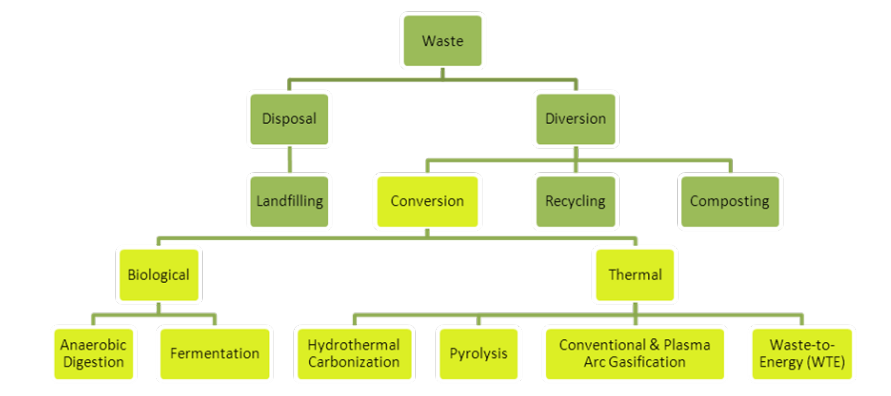In this narrative, “waste disposal” is used to refer to traditional municipal solid waste (MSW)
landfilling, where material is permanently placed in engineered landfills with no additional
processing or further treatment (barring landfill “mining”, an activity occasionally practiced in
Virginia). Conversely, MSW “diversion” is used to refer to efforts to use or reuse waste, for its
material/physical contents or calorific value for energy. Diversion includes MSW composting,
recycling, and conversion.
Conversion technologies utilize thermal or biological/chemical processes to convert MSW into useful
products such as fuels, electrical power, and commercial/industrial chemicals. Conversion
technologies have, in many cases, existed for decades, though they have not been widely adopted in
the United States. A potential breakdown of the relationships between types of waste management
technologies are presented in Exhibit 1 (Environmental Research and Education Foundation, 2013).

There are myriad reasons waste management entities adopt emerging conversion technologies,
including increasing costs of landfilling, reduced or rapidly-decreasing landfill capacity, challenges
developing or expanding landfills, and sustainability incentives for alternative waste management
practices. The nature of the primary conversion process and resulting outputs differs from process to
process, but most conversion technologies follow a similar general progression; mechanical pre-
processing of waste, conversion process, and treatment of process outputs (Exhibit 2).
